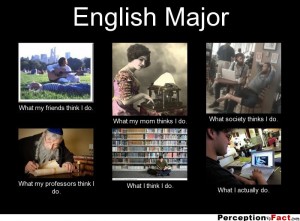A few years ago in my school district on Long Island, history was made when a then-19 year old boy was elected to the Board of Education. As my district (as I’m sure many others do) has experienced issues with the Board of Education and school administration communicating, a large majority of the town was excited to have someone fresh out of the very same school district there to make decisions. The boy, who is still serving on the BOE, is named Peter Mountanos, and is actually a close friend of mine.
How does this relate to ENGL 340? Peter ran for the BOE with a platform of increasing the knowledge of the entire community about technology, spreading information during his campaign mainly through his website, which he coded himself.
This January, for the second year in a row, Peter orchestrated a very successful TechDay event. Being a friend of Peter, when he expressed a need for college aged volunteers, I offered my assistance in any way that I could. Peter knew I was attending Geneseo pursuing English education and psychology, and that I had no computer science background whatsoever, so I assumed I would be manning the registration table or running snacks around to some little kids. However, when I went to the first meeting for all of the volunteer staff, I found out Peter had assigned me to co-teach a class of 5th graders along with Chris, who had a strong technology background, as well as Lindsey, one of my friends who was equally as clueless as myself.
In about a week and half, Lindsey and I worked with Chris to master MIT’s Scratch, a very basic coding language, and learn how to code a Super Mario game we would be teaching to the kids. While this was a very daunting task, the whole experience was really rewarding. I realized that computer science, and coding in general, should not be limited only to those with a strong STEM background and mind. The principles of coding are very simple; breaking down a task into a variety of smaller tasks.
After reading the syllabus of English 340, I immediately sent it to Peter, who was intrigued by the whole concept. Personally, the concept of digital humanities is something that interests me greatly, especially as something to bring into a classroom. Honestly, after finishing my TechDay experience I was a little disappointed I wasn’t going to be able to continue with any sort of technological or coding. In that respect, English 340 was exactly what I needed. I really like the idea that the digital revolution is not lost in humanities. For TechDay, I was the only volunteer not studying a STEM field. However, I really do think there is room for technology and, coding in particular, in different fields.


